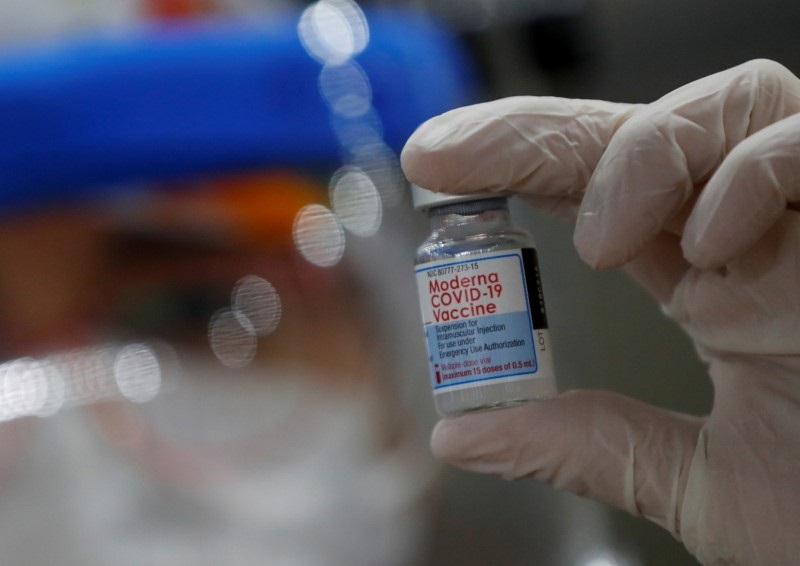Moderna may be superior to Pfizer against Delta

The mRNA vaccine from Pfizer and BioNTech may be less effective than Moderna's against the Delta variant of the coronavirus, according to two reports posted on medRxiv on Sunday ahead of peer review. In a study of more than 50,000 patients in the Mayo Clinic Health System, researchers found the effectiveness of Moderna's vaccine against infection had dropped to 76% in July - when the Delta variant was predominant - from 86% in early 2021. Over the same period, the effectiveness of the Pfizer/BioNTech vaccine had fallen to 42% from 76%, researchers said. While both vaccines remain effective at preventing COVID hospitalization, a Moderna booster shot may be necessary soon for anyone who got the Pfizer or Moderna vaccines earlier this year, said Dr. Venky Soundararajan of Massachusetts data analytics company nference, who led the Mayo study.
In a separate study, elderly nursing home residents in Ontario produced stronger immune responses - especially to worrisome variants - after the Moderna vaccine than after the Pfizer/BioNTech vaccine. The elderly may need higher vaccine doses, boosters, and other preventative measures, said Anne-Claude Gingras of the Lunenfeld-Tanenbaum Research Institute in Toronto, who led the Canadian study. When asked to comment on both research reports, a Pfizer spokesperson said, "We continue to believe... a third dose booster may be needed within 6 to 12 months after full vaccination to maintain the highest levels of protection."
Breakthrough COVID-19 more likely months after vaccination
Ovarian egg sacs not harmed by COVID-19 antibodies The sacs in the ovaries where eggs are stored are not harmed by COVID-19 antibodies, whether those antibodies are the result of infection or vaccination, a small study suggests. Israeli researchers analyzed fluid from ovarian sacs, or follicles, from 32 women who were having their eggs retrieved to be fertilized by sperm in a test tube. Fourteen women had not been vaccinated against the coronavirus nor infected with it. The others had either recovered from COVID-19 or received the Pfizer/BioNTech mRNA vaccine, and in these two groups the researchers saw antibodies against the virus in follicle fluid. There was no difference among the groups in the follicles' ability to make female sex hormones, nourish and nuture the egg so it will form a good quality embryo, and release the egg during ovulation. There was also no difference in "the rate of good quality embryos" from the eggs retrieved from each patient," said Dr. Yaakov Bentov of Hadassah-Hebrew University Medical Center in Jerusalem, who coauthored a report published on Saturday in Human Reproduction.
RELATED Delta variant behind more than 80% of U.S. cases; vaccines still highly effective -Fauci
